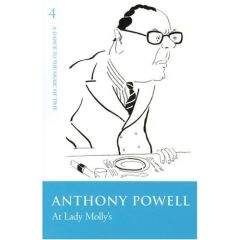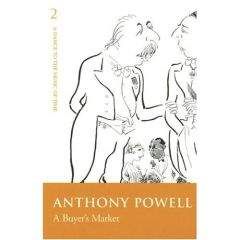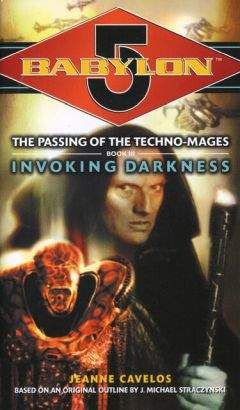Anthony Powell - At Lady Mollys
На сайте mybooks.club вы можете бесплатно читать книги онлайн без регистрации, включая Anthony Powell - At Lady Mollys. Жанр: Современная проза издательство неизвестно,. Доступна полная версия книги с кратким содержанием для предварительного ознакомления, аннотацией (предисловием), рецензиями от других читателей и их экспертным мнением.
Кроме того, на сайте mybooks.club вы найдете множество новинок, которые стоит прочитать.

Anthony Powell - At Lady Mollys краткое содержание
At Lady Mollys читать онлайн бесплатно
‘I didn’t know you ever met anyone but your own relations, Alfred,’ she said, evidently determined to pursue that subject. ‘You always pretend to me that you never go anywhere. I only got you here tonight because you wanted to hear from her own lips Mrs. Conyers’s story about the Empress Frederick. I believe your quiet evenings at home are all make-believe and that you live a disgracefully fast life — the gayest of gay bachelors.’
Tolland denied this imputation emphatically. He did not seem in the least flattered at the suggestion that he might be, so far as social life was concerned, a dark horse. He was patently without the smallest personal vanity, open or secret, on the matter of cutting a dash in life. He came at last to the end of his protests.
‘Alfred was talking about his family all through dinner,’ said Molly Jeavons, turning once more to me. ‘You know they are all in trouble — every blessed one of them.’
‘It’s too bad of you to say that, Molly. I only asked for your advice about some of my nephews and nieces.’
Now he sounded thoroughly aggrieved, although at the same time unwilling to withdraw voluntarily from a conversation devoted to his relations.
‘What’s the matter with the Tollands this time, Aunt Molly?’ asked Lovell.
He had been making a tour of the room, ending with our group.
‘Oh, it’s Erridge again,’ she said.
She spoke as if the question were hardly worth asking.
‘What’s Erridge’s latest?’
Lovell, for his part, spoke as one expecting to hear an enjoyable piece of gossip about a character always to be relied upon to provide a good story.
‘Living as a tramp,’ said Molly Jeavons. ‘So I’m told at least. Somewhere in the Midlands. Grew a beard. He has still got it, they say. I don’t think he actually slept in casual wards. The other tramps must have had an awful time if he did. As a child he used to talk in his sleep and bawl the house down with night terrors.’
‘Is he doing that now?’ asked Lovell. ‘Being a tramp, I mean, not bawling the house down — though I shouldn’t wonder if he doesn’t have night terrors still.’
‘He is back at Thrubworth. Getting cleaned up after his adventures — as much as Erry ever gets cleaned up. Smith goes back tomorrow. I am more and more coming to think that Smith is more trouble than he is worth. It’s convenient to have a manservant in the house, but I found this morning we were completely out of gin, and I know at least two inches remained in the bottle left when we went to bed last night.’
Lovell was obviously disappointed that nothing more sensational about Erridge was to be revealed.
‘Feingold had some story about “a lord” who was doing “social research”,’ he said. ‘I thought it might be Erridge. I don’t expect the dumps he stopped at were any more uncomfortable than he has made Thrubworth by now. The whole place has been under dust-sheets since he succeeded, hasn’t it? Do you know Erridge, Nick? He must be about a contemporary of yours.’
‘He is a year or two older. I used to know him by sight. His brother, George Tolland, was nearer my age, though I didn’t know him either. But he isn’t “Erridge” any longer, is he?’
‘No, no, he is “Warminster” now, of course,’ said Molly Jeavons, impatiently. ‘But Alfred’s family always call their eldest son by the second title. I don’t even know what Erry’s Christian name is. Perhaps he hasn’t got one.’
‘Nonsense, of course he has,’ said Tolland, quite angrily. ‘His name is Alfred, like my own. You know that perfectly well, Molly. Besides, to call him “Erridge” is perfectly usual, isn’t it? In fact, off-hand, I can’t think of a single family that does differently.’
‘We always used to think it rather pompous,’ said Molly Jeavons. ‘I can’t imagine myself ever addressing Jumbo as “Kilkeel” when he was alive. It would sound like a racehorse.’
‘Well, “Jumbo” sounds like an elephant to me,’ said Tolland.
This retort must have struck him as one of unusual subtlety, since he looked round at Lovell and myself in an appeal for applause; or at least for sympathy.
‘That’s just it,’ said Molly Jeavons, now speaking almost at the top of her voice. ‘My poor brother did look like an elephant. Nobody denied that, not even himself. But he did not look like a race-horse. Not one I would have put my money on, anyway.’
‘Bijou put her shirt on him,’ said Lovell.
‘Rubbish, she didn’t,’ said Molly Jeavons, beginning to laugh. ‘He put his shirt on her, you idiot — and lost it, too.’
I remembered, then, that Tolland had spoken of ‘my nephew, Warminster’, at the Le Bas dinner where we had met; at the same time mentioning that this young man had succeeded his father some years before. Tolland had added that his nephew was ‘a funny boy’. Erridge (as it seems simplest — like his parents — to continue to call him, anyway for the time being) remained in my mind as a gloomy, cadaverous schoolboy, trudging along the road close to the wall, his hands in his pockets and a pile of books slipping from under his arm. Angular, sallow and spotty, he was usually frowning angrily to himself, weighed down with anxiety, as if all the troubles of the world rested on his shoulders. The only time I could recall seeing him in later life was, years before, at a dance given by the Huntercombes. On that occasion, Erridge had looked so hot, cross and untidy that only the fact that he was wearing a tail-coat and white tie — neither in their first freshness — prevented him from resembling, even then, a harassed young tramp. His appearance that night had certainly borne out this recent account of him. The ball at the Huntercombes’ remained always with peculiar clarity in my mind as the night Barbara Goring had poured sugar over Widmerpool’s head.
‘Does Erridge often do this sort of thing?’ I asked. ‘Go off on “social research”, I mean?’
‘Oh yes,’ said Molly Jeavons. ‘He has the oddest ideas. All your family have, haven’t they, Alfred? The whole blessed lot of them.’
Tolland made a nervous movement with his head, as if attempting to deny the principle of the accusation while at the same time regretfully having to admit, anyway in part, some of its immediate justice.
‘Warminster was not like that,’ he said. ‘I’m not like that. Not in the least. Nor are Frederica and George. And I trust the younger ones will turn out different from Erridge. They all seemed all right when they were children. Ran about and made a lot of noise. Just can’t tell, I suppose. Just — can’t — tell.’
If he expected this exhibition of philosophic resignation in some manner to appease Molly Jeavons, he was mistaken.
‘Certainly Frederica is not strange,’ she said, laughing uproariously at the idea. ‘Frederica is ordinary enough for anyone. Got to be in her job. Frederica is as ordinary as you like.’
This agreement with his conclusion — the complete, the absolute ordinariness of his niece, Frederica — seemed to bring some temporary alleviation to Tolland’s feelings. He nodded several times with satisfaction. I had some vague idea as to Frederica’s identity. She had married one of the Budds, brother or cousin of a ‘beauty’ called Margaret Budd, and her husband had been killed in a hunting accident only a few years later. People had talked about his death in the days when I used to dine with the Walpole-Wilsons. I remembered Anne Stepney talking about the accident.
As I was by then committed to this conversation about a lot of people regarding whom I knew little or nothing, I decided to take an active part by seeking further information. I asked what Frederica Budd’s job might be that required such extreme correctness of behaviour.
‘She is Lady-in-Waiting,’ said Molly Jeavons. ‘Or she may be an Extra Woman of the Bedchamber. Something like that. Anyway, she has to behave herself jolly well. I’m surprised you haven’t met her, if you are an old friend of Mrs. Conyers. She and Frederica are great cronies.’
At that period, as I have said, I knew little of the Tollands, although increasingly during the past few years I had been hearing scraps of information about one or other of them, as happens when a large family, close to each other in age, begin in quick succession to appear in the world. Lovell had given some account of them at dinner. Molly Jeavons’s sister, Katherine, a childless widow, had married the late Lord Warminster as his second wife. ‘As a result,’ Lovell had said, ‘she possesses a dozen step-children.’ It turned out, in fact, that Erridge had only nine brothers and sisters. Even that number seemed preposterously large to an only child like myself. There is something overpowering, even a trifle sinister about very large families, the individual members of which often possess in excess the characteristics commonly attributed to ‘only’ children: misanthropy: neurasthenia: an inability to adapt themselves: all the traits held to be the result of a lonely upbringing. The corporate life of large families can be lived with severity, even barbarity, of a kind unknown in smaller related communities: these savageries and distillations of egoism often rendered even less tolerable if sentimentalised outside the family circle. The Tollands, from what Lovell reported of them, sounded no exception to this prejudiced judgment.
‘Of course it was hard for them losing their mother — being left orphans, in fact,’ said Tolland. ‘Though of course Katherine has always done her best — been splendid, really.’
By introducing the name of the second Lady Warminster into the conversation, he may have hoped to carry the war into the enemy’s country. By then his face was more flushed than ever. His hostess was determined to let him off nothing. I had the impression that she was teasing him, not precisely for my especial benefit, but, at the same time, that my presence as a newcomer to the house afforded a particularly favourable opportunity for the application of torments of this sort. I found later that she was indeed what is called ‘a tease’, perhaps the only outward indication that her inner life was not altogether happy; since there is no greater sign of innate misery than a love of teasing. Later, too, I understood how much that night Alfred Tolland must have been torn between a pride that made him hesitate to discuss his relations in front of a stranger, and a taste for talking about his family, too rarely satisfied in his lonely life. It was a treat to visit someone who understood the niceties of family gossip, even if Molly Jeavons required her pound of flesh by ragging him. His face, completely masculine in cast, had at the same time that air of being quite untouched by sexual passion: a look noticeable sometimes among men of his generation. Lovell explained to me later that Tolland had always had a taste for good works and had been much used by the late Lord Sleaford in connexion with his charities. He was a fine example of my friend Barnby’s observation that ‘melancholy is the curse of the upper classes’.
‘And what about Norah?’ said Molly Jeavons.
She had to repeat the question twice, for the first time Tolland made no attempt to reply. He seemed completely knocked out. The challenge was apparently unanswerable. He could only nod his head. There was no spirit left in him. To bridge the silence, I asked if it were not true that Norah Tolland shared a flat with Eleanor Walpole-Wilson.
‘She does, she does,’ cried Molly Jeavons, laughing loudly again at my question, as if I had shown myself to have missed the whole point of what was being said. ‘Do you know them? I didn’t think they ever saw any young men. I’m jolly glad to hear they do. Tell me about them. Is it true that Eleanor has been seen in a green pork-pie hat and a bow tie?’
Mrs. Conyers, escaped from the man to whom French must be talked, now joining our group, nodded her head and pursed her lips, as if to emphasise the depths to which Eleanor had fallen.
‘As a matter of fact, I haven’t seen Eleanor for years,’ I said. ‘I used to dine with them once in a way. I saw Sir Gavin Walpole-Wilson at the Isbister Retrospective Exhibition when it was on, and he said something about Norah Tolland. I’ve never met her.’
‘They look like a couple of stable-boys,’ said Molly Jeavons. ‘And talk like stable-boys, too. I hear they swear like troopers.’
From the way she spoke, I suspected she knew very little about these two young women, and was, in fact, anxious to learn more. Finding me unable to offer a closely observed report on their activities, she abandoned the subject and renewed her general attack on Tolland.
‘And then Hugo,’ she said. ‘What about Hugo?’
She spoke as if Hugo clinched every other argument. If the name of Norah had knocked Tolland out, that of Hugo reduced him to the position of an army not only defeated in the field, but also forced to join as an ally its victorious adversary.
‘I hear his clothes are — well, awful,’ he muttered, almost inaudibly.
So far as Hugo was concerned, he seemed to agree absolutely with Molly Jeavons in thinking the situation could scarcely be worse.
‘But all undergraduates are like that,’ said Mrs. Conyers, unexpectedly. ‘I mean they all wear extraordinary clothes, don’t they? They always have — and say things to try and shock people. My father used to say they were like that even in his day. I know he himself, just after he had been sent down from Oxford, said some terrible thing to Mr. Gladstone when he was introduced to him at Holland House. My father had to write and apologise, or I don’t know what would have happened. I am not sure the Ministry might not have fallen.’
‘Well,’ said Molly Jeavons, ‘I’ve known some undergraduates in my time — Jumbo, for instance, you should have seen him in his young days — but I’ve never met one who dressed like Hugo. I was talking to the Bridgnorths’ boy, John Mountfichet, when he was here the other day. He is at the same college as Hugo. He told us some things that would make your hair stand on end. They made Teddy laugh, and you know how difficult that is.’
‘Even Sillery says Hugo goes too far,’ said Lovell. ‘He drives all the other dons quite mad, of course, but I should have thought Sillery would have stuck up for him. The other undergraduates are very disapproving too. Apart from anything else, aesthetes have gone completely out of fashion at both universities these days. I told Hugo when I saw him the other day that he was hopelessly out of date.’
‘What did he say?’
‘“My dear, I love being dated. I hate all this bickering that goes on about politics. I wish I’d lived in the Twenties when people were amusing.”’
Lovell spoke the words with the mannerism he judged appropriate to such an impersonation.
‘He’ll grow out of it,’ said Mrs. Conyers, surprising me with this repeated display of toleration. ‘Lots of nice young men go through a stage of being rather silly.’
‘Let’s hope so,’ said Alfred Tolland, with a sigh.
He did not sound very confident.
‘At any rate, George is all right,’ he added a moment later.
Похожие книги на "At Lady Mollys", Anthony Powell
Anthony Powell читать все книги автора по порядку
Anthony Powell - все книги автора в одном месте читать по порядку полные версии на сайте онлайн библиотеки mybooks.club.



